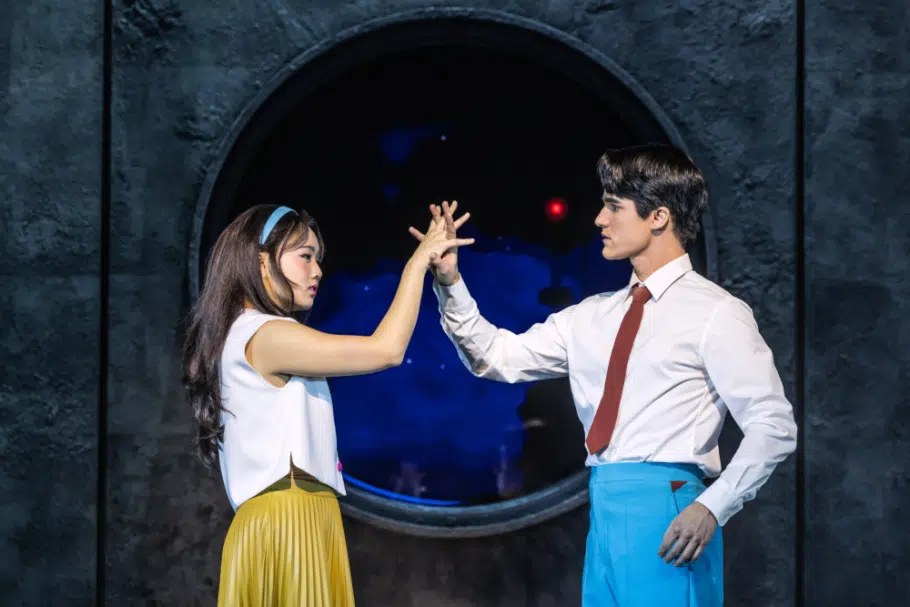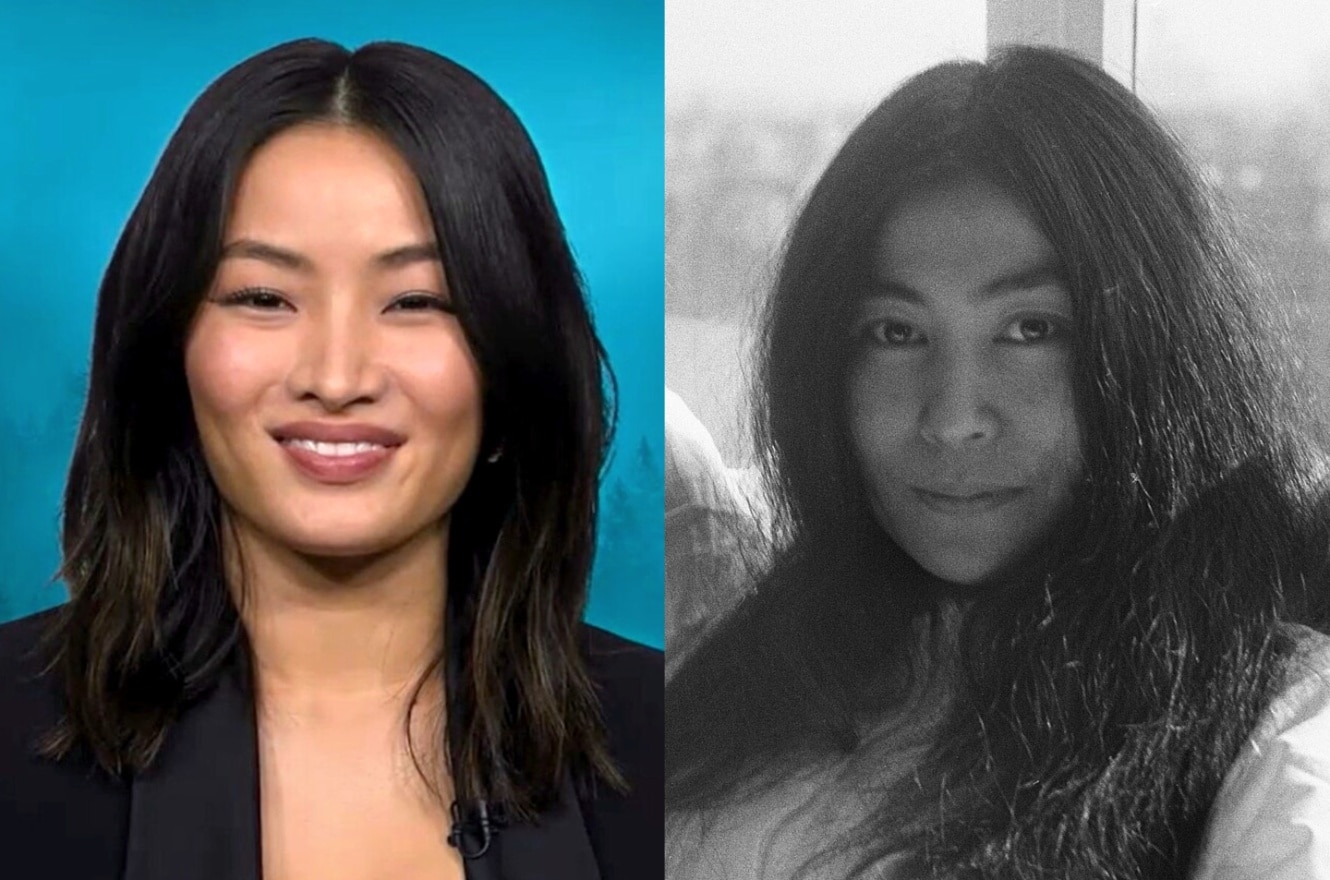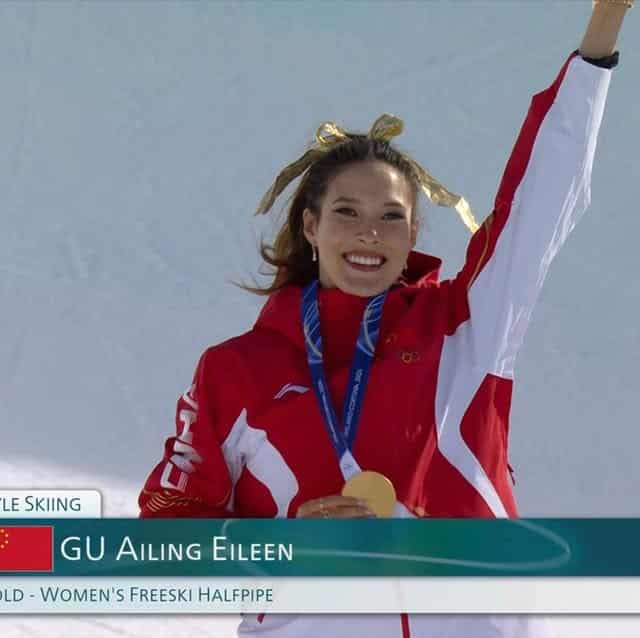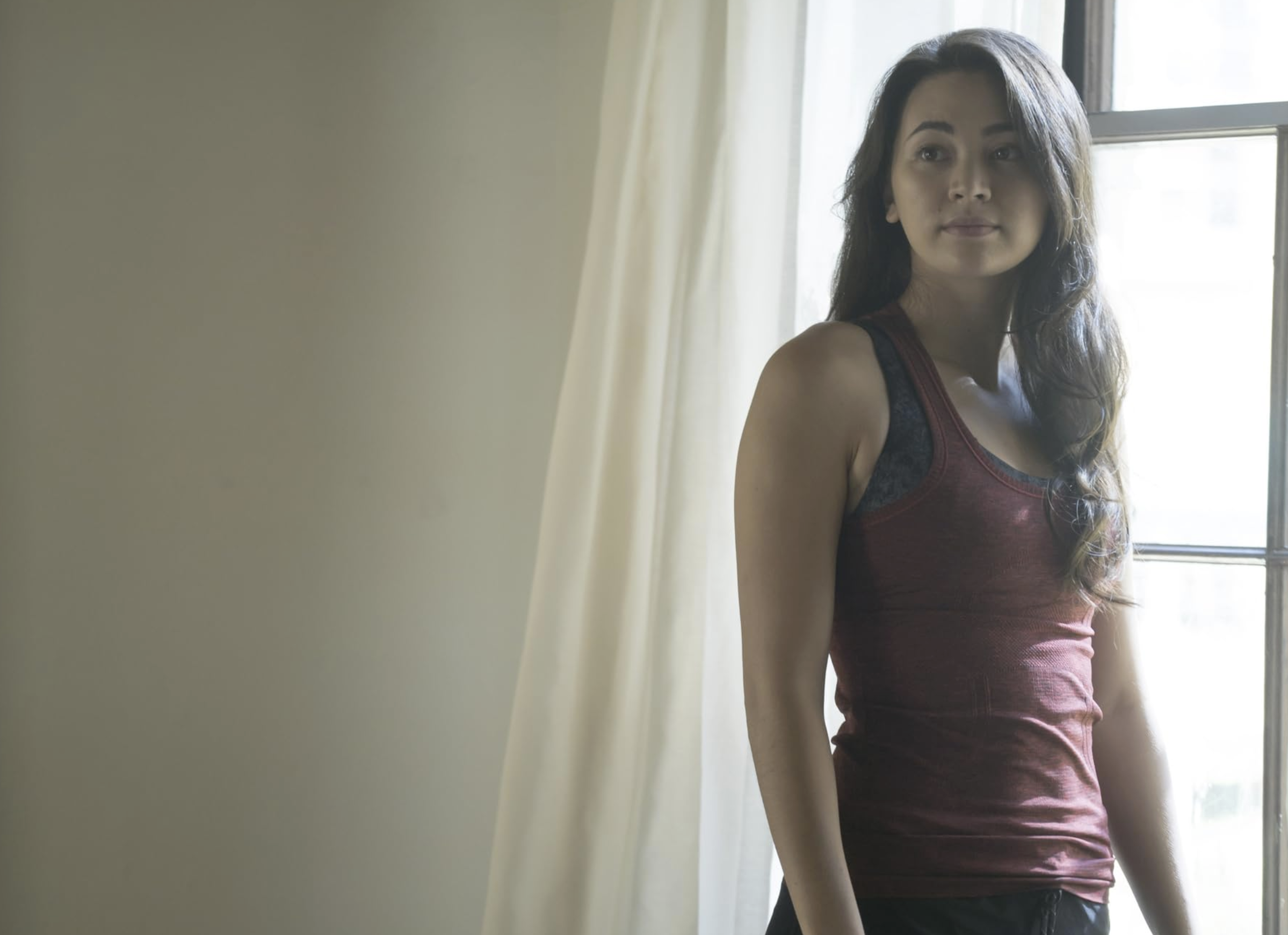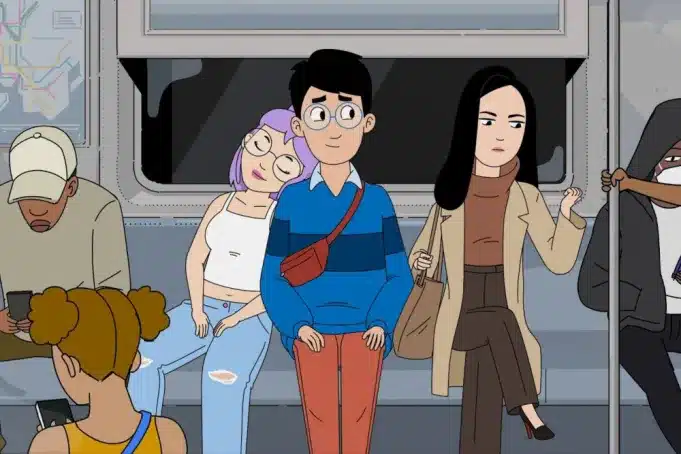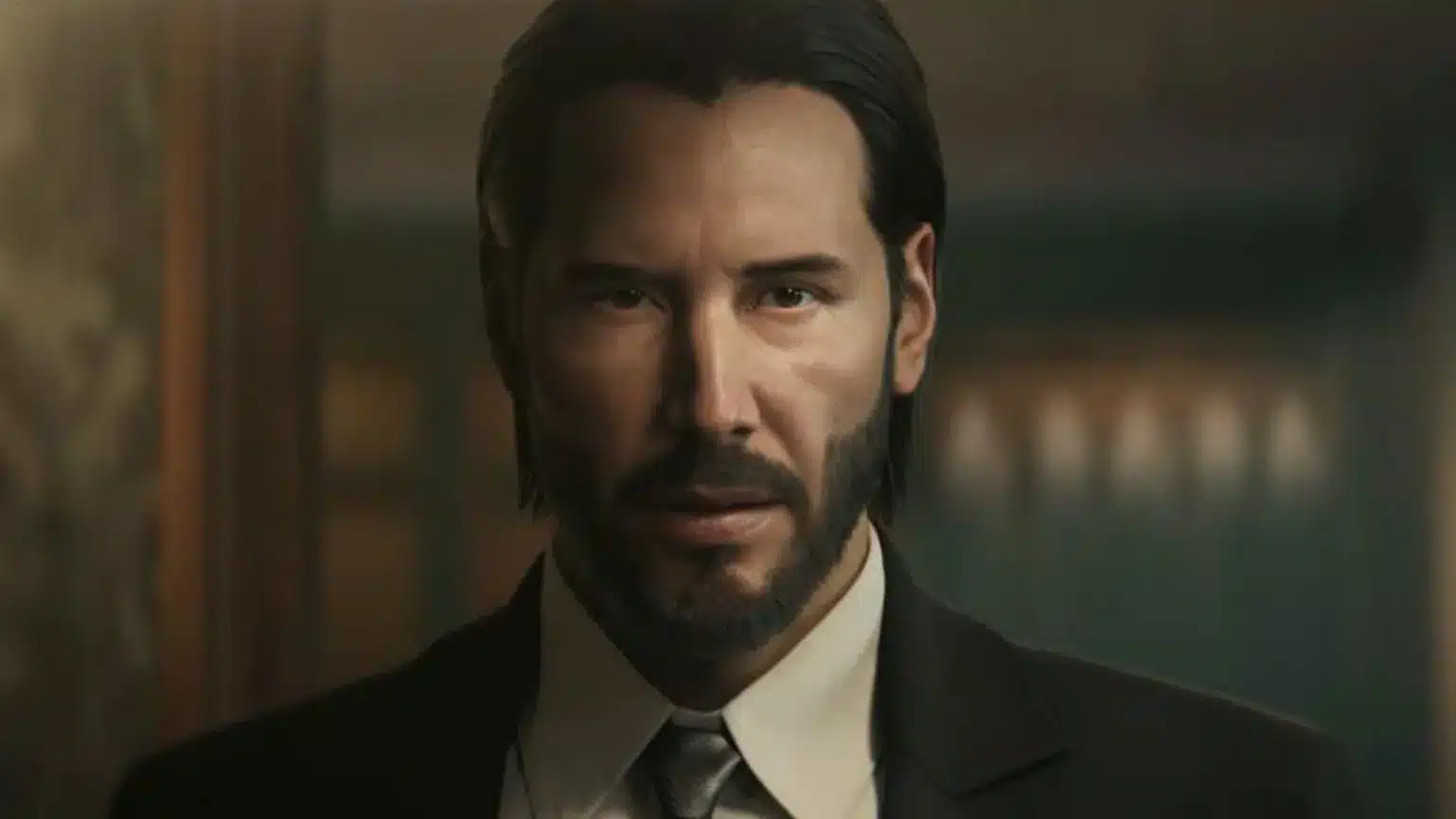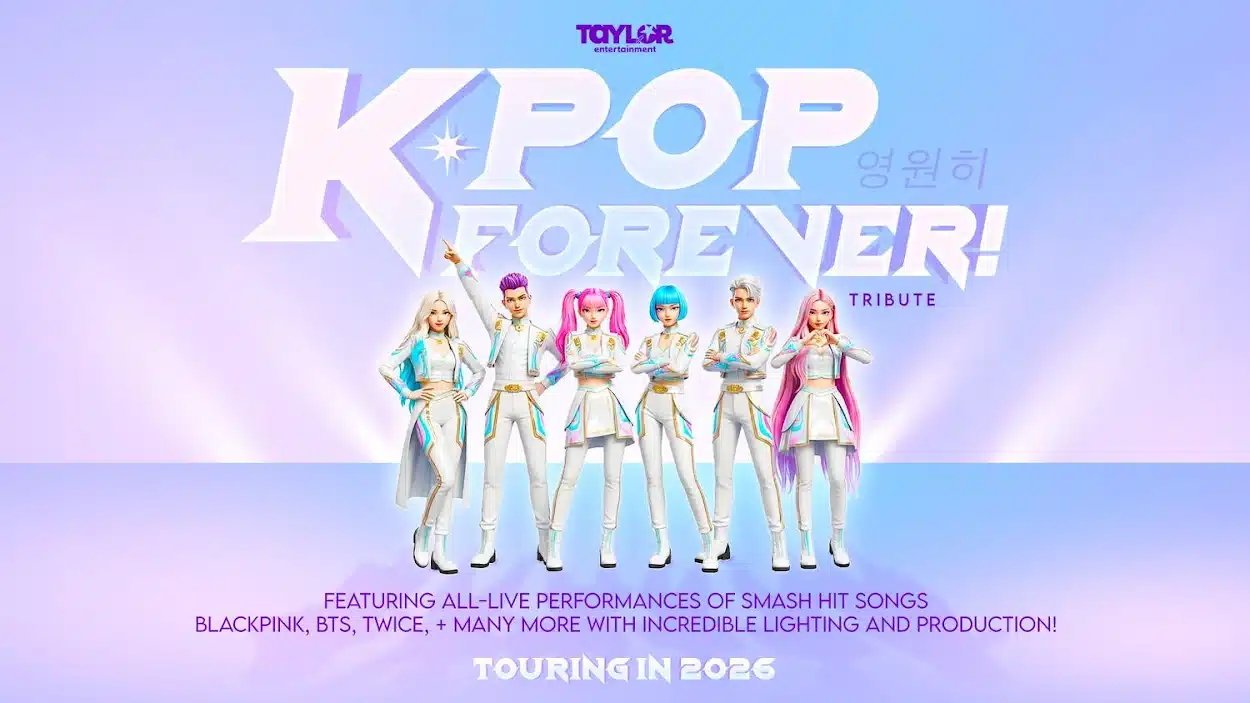The Broadway musical Maybe Happy Ending, a show set in Seoul about two retired helperbots who fall in love, was a rare feel-good story for Asian American representation in theater. It was celebrated for its majority-AANHPI cast, and its lead actor, Darren Criss, a mixed Filipino performer, made history by winning a Tony Award. Now, with Criss leaving the show, a new casting decision has complicated the production’s legacy.
The new actor taking over the lead role of Oliver for a nine-week run is Andrew Barth Feldman, who is white. He is also in a relationship with the show’s current lead actress, Helen J. Shen. The announcement, which came after the show’s Tony wins, sparked a week-long conversation online and within the theater community about the intent and impact of casting.
The Question of Universality
The decision has drawn “profound disappointment” from the Asian American Performers Action Coalition (AAPAC). In a statement, AAPAC argued that while the original Broadway cast, which was almost entirely AANHPI, had “created a rare opportunity for AANHPI actors to play both leading and supporting roles,” the new casting “de-emphasizes cultural specificity.”
AAPAC’s statement continued: “If the intent has been to show the story’s ‘universality,’ we are reminded that though we have long been expected to view white stories populated by only white actors as ‘universal,’ stories about people who look like us that are populated by people who look like us are rarely considered universal enough.” The coalition noted that this kind of decision feels like a retreat at a time when Asian American histories are “being rampantly erased, censored, and banned, and our stories colonized.”
Read more: Lea Salonga to Receive Hollywood Walk of Fame Star for Theatre Work
The show’s authors, Will Aronson and Hue Park, responded in an Instagram statement, acknowledging they’ve “heard how strongly people connected to that representation, even if that wasn’t our original intention, and how this casting decision has re-opened old wounds.” They explained their original goal was to make a show that would become “part of the American musical theatre canon—a modern-day Fantasticks, able to be comfortably performed by anyone, anywhere,” with the robot roles not intended to always be played by Asian performers.
Voices from the Community
The conversation has been widespread among Asian American artists. B.D. Wong, the veteran stage actor and long-time advocate for Asian representation, weighed in with an online essay. He argued that while the show’s authors may believe that “robots know no race,” the show’s meticulously constructed South Korean setting “clashes” when the lead actor is not Asian. Wong wrote, “We must express, though, how painful it is to be passed over, yet how used to it we’ve become. How rare ‘Asian Shows’ are.” Wong and over 1,300 people signed the essay.
Conrad Ricamora, a Tony nominee for Oh, Mary!, also felt a sense of “pain from being told — subtly and explicitly — that we don’t belong.” In response, he started a scholarship fund called “The Right to Be There” for Asian American male actors, saying his goal was to “put something in the ground that maybe later on can grow and provide sustenance and resources in the future.”
A Complicated Moment
Helen J. Shen, who continues in her role as Claire and is Feldman’s real-life partner, shared her own struggle with the situation, writing, “I’ve been struggling to hold multiple truths in me that seem to contradict.” She acknowledged the hurt felt by the community, stating, “A part of me is mourning that along with the community.” However, she also expressed her joy at the prospect of acting opposite Feldman, whom she called “the perfect” person for the role.
This nuanced and difficult conversation has raised the question of whether an online backlash, no matter how understandable, might inadvertently harm a production that has already provided a rare platform for AANHPI artists.
Christopher James Tamayo, a standby in the show, noted that “the online discourse has lost the plot,” arguing that the outrage should be directed at “larger systemic issues that exist throughout the entirety of our industry, not at the expense of the very real artists and real people working in the building to help tell this story.”
The producers, in their initial casting statement, framed the decision as “embracing infinite and exciting possibilities in casting,” positioning the role as one that welcomes different interpretations. Yet, as Wong pointed out, giving a white actor a role initially played by an actor of color feels like the opposite of that, especially in a world of limited opportunities.
Whatever the outcome for Maybe Happy Ending, this moment is prompting a difficult but vital discussion about the boundaries of representation and the responsibilities that come with creating and presenting art in a diverse world.

